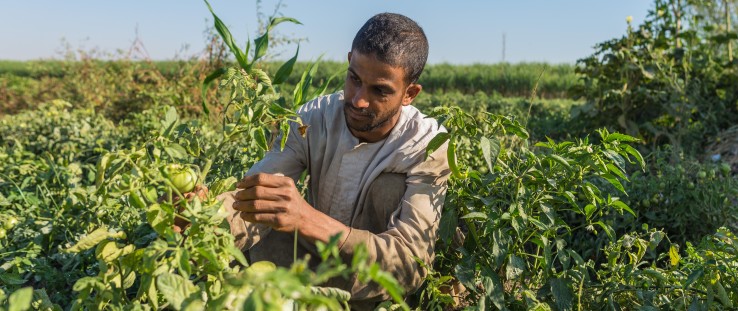 A farmer inspects his tomato crop in Esna, a small town in southern Egypt outside Luxor.
Mohamed Abdel Wahab for USAID
A farmer inspects his tomato crop in Esna, a small town in southern Egypt outside Luxor.
Mohamed Abdel Wahab for USAID
 A farmer inspects his tomato crop in Esna, a small town in southern Egypt outside Luxor.
Mohamed Abdel Wahab for USAID
A farmer inspects his tomato crop in Esna, a small town in southern Egypt outside Luxor.
Mohamed Abdel Wahab for USAID
Speeches Shim
Saad Hamed and Ibraim Amer come from farming families in Esna, a small town in southern Egypt. As leaders in their community, they have each led farm associations that together represent about 500 small growers who look to them for guidance in and out of the field.
In 2014, they were among the first to participate in a USAID-funded project that trained 13,000 farmers on export standards and connected them with international buyers to increase incomes and improve livelihoods. The project is part of Feed the Future, the U.S. Government’s global hunger and food security initiative.
“It is an exciting time to be a farmer in Egypt,” said Hamed, chairman of the Al Mataana Association. “We are learning so much to help us grow food that people outside of Egypt want to buy,” he continued.
And he is right: In 2016, Egyptian growers exported $2.2 billion in fresh fruit and vegetables. Egyptian exports of grapes alone rose from around 8,000 tons in 1996 to 118,000 tons in 2016.
But this hasn’t always been the case.
The agriculture sector in Egypt has long been dominated by farmers with fewer than 5 acres of land who use outdated practices such as overusing agriculture chemicals to grow traditional, low-cash crops like sugar cane and maize. “Many of us do not know any other way to farm,” said Hamed.
“But we want to learn,” interjected Amer, former chairman of the Asfoun Farm Association.
Recognizing farmer interest and market potential, USAID partnered with the local, woman-owned firm Blue Moon Ltd. in 2011 to help farmers comply with international standards—and increase their incomes.
Starting in Beheira, a small farming town in the Delta region, over 5,200 farmers learned global agriculture practices such as properly using and storing pesticides, instituting proper hygiene practices, and implementing employee health and safety rules. In coordination with their farm associations, farmers began to maintain production records in a farm management system so they could trace their produce back to their farms.
These practices are part of a larger set of quality and safety guidelines—international standards developed by the food industry that spell out good agricultural practices at the farm level. USAID helps farmers, once they are certified, to connect to international buyers and negotiate contracts.
Growers in Beheira quickly implemented the standards and began selling sweet potatoes to Switzerland and peppers to Germany, increasing incomes by at least 35 percent. Germany’s demand was so great that the farm associations hired 40 women from the community to help process the peppers for shipping. Given the project’s success in the Delta region, USAID helped it expand to Upper Egypt in 2014—to Hamed and Amer’s community in Esna.
In Need of a ‘Miracle’
But in Esna, farmers did not have access to proper refrigeration necessary to meet international standards. Farm association leaders Hamed and Amer joined forces with a third association to work with USAID to upgrade an existing produce collection center to a cold storage packhouse in 2015.
This new facility provides a modern processing and storage warehouse to collect and pack produce for export that meets international standards. The three founding associations sit on a nine-member board of directors and oversee the Esna Packhouse operations. Starting the facility was nothing short of a miracle.
“It is rare to see three associations in Egypt working together as one for a common goal,” said USAID agriculture specialist Mohamed Abo El Wafa. “They work to make the packhouse a success in every way.”
Creating the packhouse was a success, but convincing association members to alter the way they farm was a challenge. Like farmers around the world, many learned farming practices from their fathers and grandfathers. Some are resistant to operating in a different way, while others are simply uncertain of the benefit—until they see the results.
For instance, members of the Asfoun Association, formerly chaired by Amer, initially agreed to set aside 10 acres to plant green beans for export when they joined the project. Once fellow growers saw the increased sales, more joined and pushed to expand the amount of land dedicated to the project by tenfold, planting additional exportable produce such as tomatoes, onions, peppers, green beans, cantaloupe and grapes.
A Better Product, A Healthier Life
Since the project’s inception, over 700 job opportunities have been created across all of the projects. And farmers confirmed that, with increased incomes, they can send their children to school, buy higher quality food for their families and better maintain their land and homes.
Growing high-quality crops for sale in the international market has changed some farmers’ thinking about how they farm for the domestic market, too. Both Hamed and Amer say they try to adhere to the same standards for produce sold locally as they apply to their international buyers. And that feels good.
“I am proud to sell good, healthy food,” says Hamed. And it shows. Farmers participating in the project attract a wider range of buyers—including local high-end grocers such as Gourmet Egypt and fast food giant McDonald’s Egypt.
Earlier this year at the Esna packhouse, warehouse staff was eager to show sundried tomatoes, piled high in climate-controlled storage, waiting to be transported to buyers in Brazil. They were visibly proud of the connections local growers have made and the increased opportunities to sell Egyptian produce around the world.
To further increase their visibility, a 15-member delegation—including Hamed and Amer—attended the Fruit Logistica trade fair in Berlin this spring, joining more than 3,000 vendors from across the globe to exhibit their fresh fruit and vegetables to more than 70,000 attendees.
While there, Amer negotiated contracts for his association to provide garlic, red onions and dates. Hamed negotiated a contract to provide cantaloupe to Brazil and is working to supply dates that “taste like chocolate” to a buyer in Jordan. Both farmers are thrilled with their increased selling power and what they saw at the fair.
“It was amazing,” said Amer. “I saw interesting ways food is packaged and displayed. When fruit and vegetables are in nice packages, customers have a better opinion about our product. I want to learn more about that.”
Manal Saleh, general manager of Blue Moon, said that small growers like Amer and Hamed will make the greatest single impact on the agriculture sector in Egypt. She says, “Once farmers and agriculture workers align and implement good agricultural practices, Egypt’s place in the international market will go up.”
It appears that both Amer and Hamed agree.
“When we returned home from the trade show in Berlin, all the people in my village were waiting to hear what I had learned,” said Hamed. "We are so thankful for the opportunity to feed our families, send our kids to school, grow our businesses and employ others in the community. I want other farmers to experience what we have—because they can.”


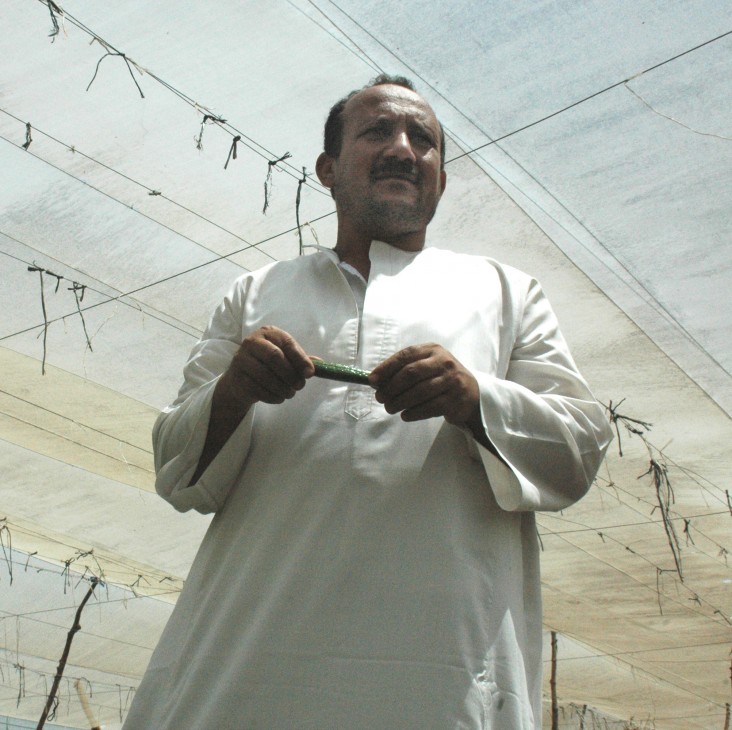
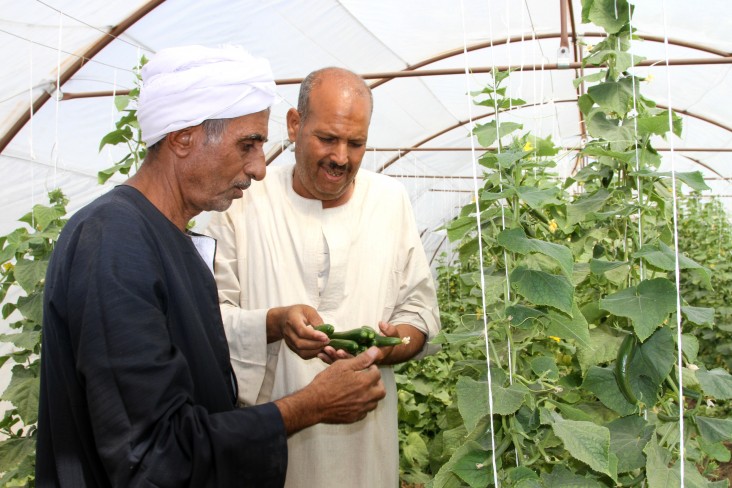
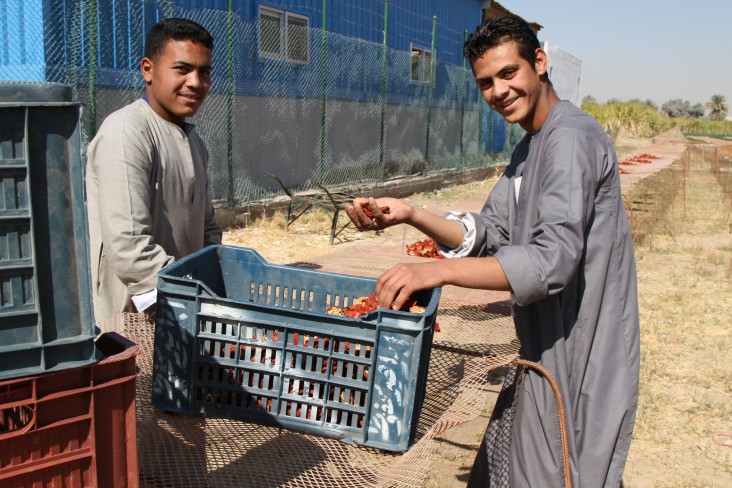
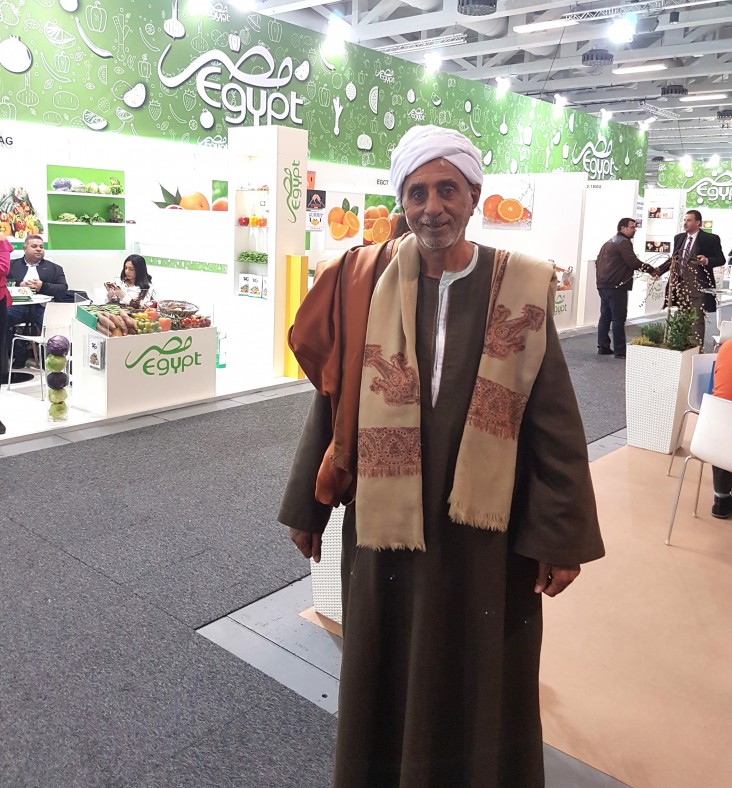
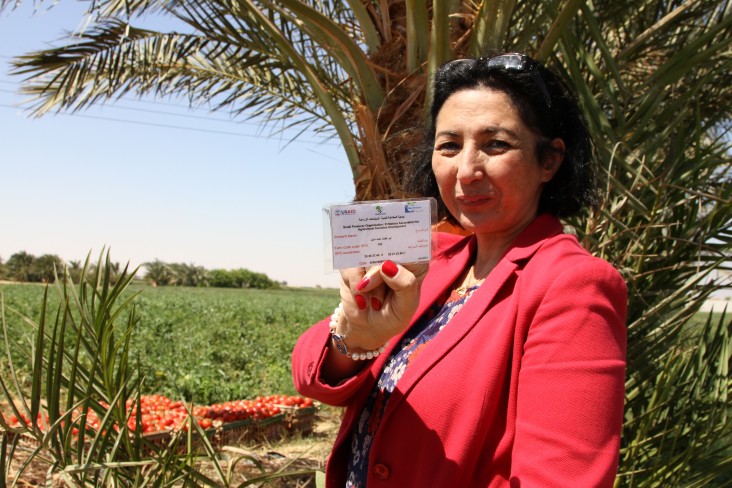
Comment
Make a general inquiry or suggest an improvement.